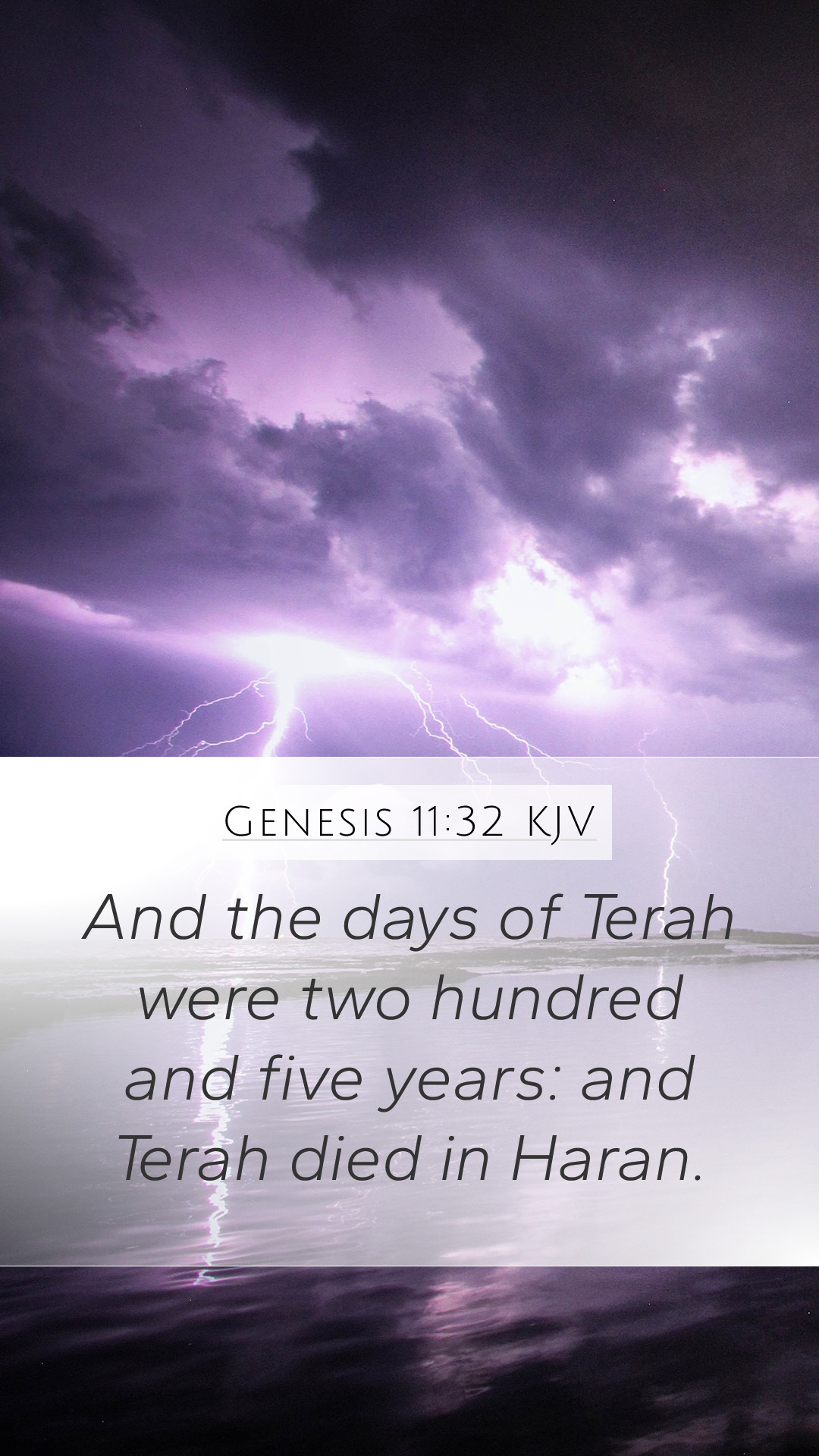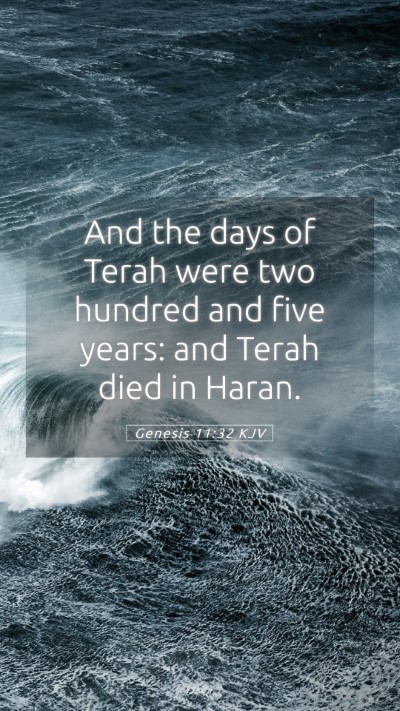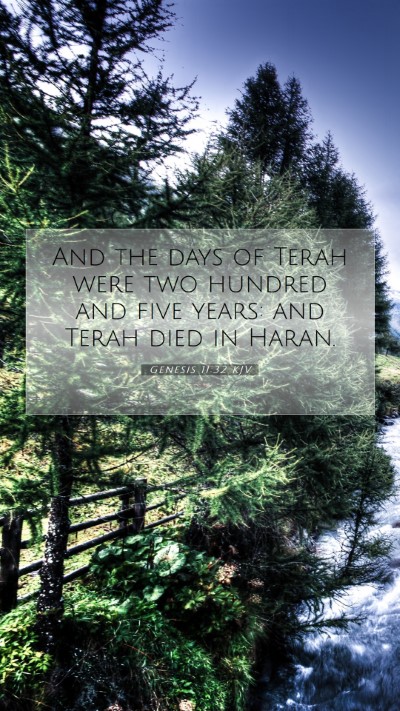Genesis 11:32 - Meaning and Commentary
Bible Verse: "And the days of Terah were two hundred and five years: and Terah died in Haran." (Genesis 11:32)
Overview: This verse serves as a closing note on the life of Terah, the father of Abram (later Abraham). It marks a significant transition in the narrative of Genesis, leading to the call of Abram and the unfolding story of God's covenant with him.
Context and Significance
This verse provides both a historical and theological context for understanding the ancestry of Abram. The mention of Terah's age at death and the location of Haran highlight the importance of lineage and the beginnings of a pivotal character in biblical history.
Insights from Commentaries
Matthew Henry's Commentary
Henry notes that the age of Terah at death may symbolize the passing of an era. Though Terah's life is not marked by notable events in Scripture, he is crucial in God's plan by being the progenitor of Abraham, who would become the father of many nations.
Albert Barnes' Notes
Barnes elaborates on the transitions within Terah's life, emphasizing the geographical significance of Haran as a place of both idolatry and divine encounter. He poses that it represents a base of departure for Abram’s extraordinary faith journey.
Adam Clarke's Commentary
Clarke contextualizes Haran as a pivotal point for Terah's family, underlining the implications of their cultural background in Ur of the Chaldees. This verse sets the stage for Abram to act on divine instruction, departing from his father’s household and thus beginning a new covenantal relationship with God.
Theological Implications
The reference to Terah's death points to the impermanence of human life and the broader theme of God's sovereignty in guiding history. The lineage from Terah to Abram serves as a reminder of God's plan unfolding through individuals who respond to divine calling.
Application for Today
This passage invites reflection on personal journeys of faith, transition, and obedience to God. Just as Abram was called to leave his past for a new future, individuals today are prompted to consider what God might be calling them to forsake in pursuit of His purpose.
Cross References
- Hebrews 11:8-9: The faith of Abraham in leaving his homeland.
- Acts 7:2-4: Stephen’s recounting of Abraham’s call.
- Genesis 12:1-3: The Lord’s promise to Abram.
- Genesis 5:32: The age of Noah at the time of his sons' birth.
- Genesis 10:24: The genealogies leading to Terah.
Bible Study Insights
Studying Genesis 11:32 provides a crucial stepping stone in scriptural narratives. It emphasizes the importance of understanding genealogies in Scripture, which play a pivotal role in identifying the movement of God's redemptive plan throughout biblical history.
This verse also encourages believers to engage in Bible studies and deepen their understanding of Scripture within communal settings, such as Bible study groups and online Bible study resources.
Final Thoughts
As we delve into the meaning of this Bible verse, it becomes clear that Genesis 11:32 encapsulates much more than a historical record. It invites us to explore our legacy, faith journeys, and God’s call in our lives, encouraging us to interpret and apply the lessons of the past to our current contexts.


